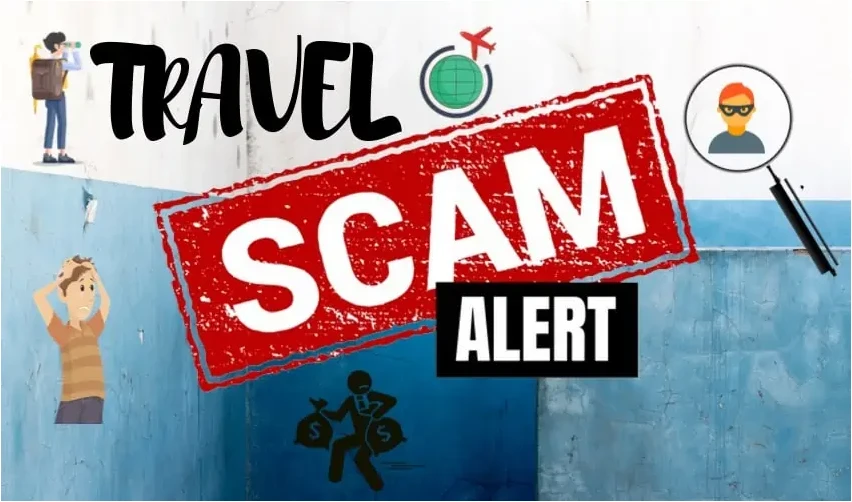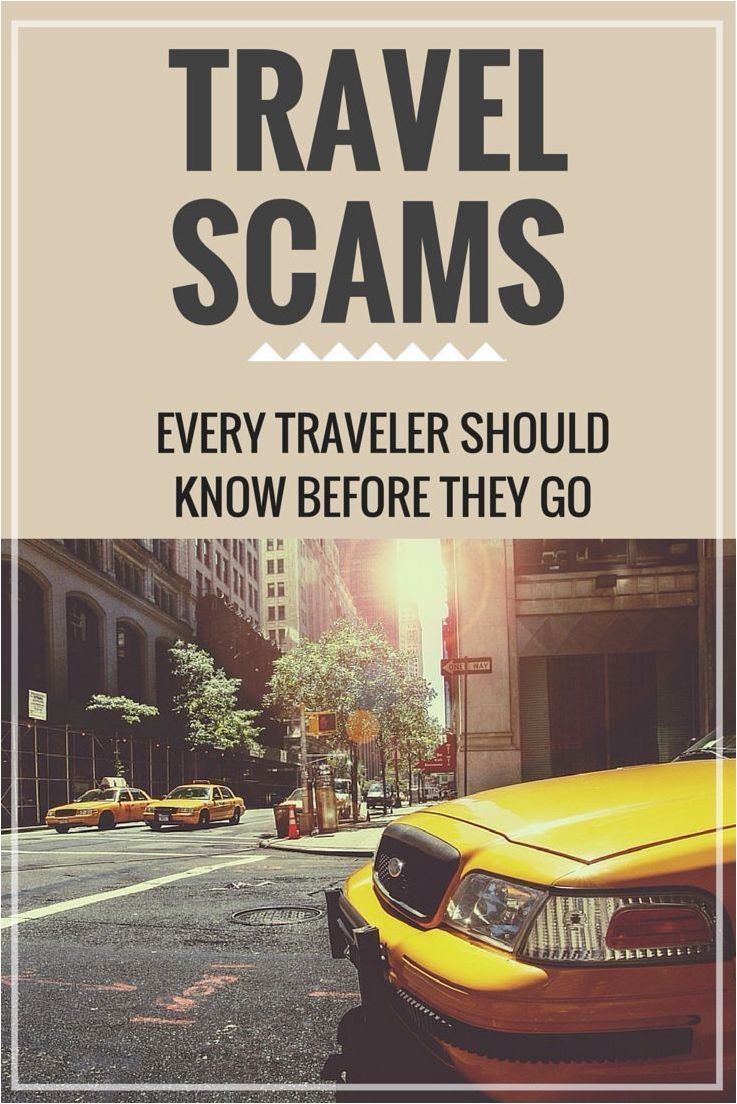
14 Major Travel Scams to Avoid
Traveling is an exciting adventure that allows us to explore new places, experience different cultures, and create lifelong memories. However, it’s important to be aware of the potential scams that can occur during our journeys. From pickpocketing to fake taxi drivers, there are countless ways that scammers can try to take advantage of unsuspecting travelers. By being informed and prepared, you can avoid falling victim to these major travel scams.
One of the most common travel scams involves fake tour guides or companies. These scammers often approach tourists offering discounted or exclusive tours, only to take their money and disappear. It’s important to research and book tours through reputable companies to avoid being scammed.
Another major travel scam to watch out for is the fake police scam. Scammers posing as police officers may approach you and ask to see your identification or search your belongings. They may then accuse you of a made-up offense and demand a large bribe to avoid legal trouble. Remember, real police officers will identify themselves properly and will not ask you for money.
One scam that especially targets tourists is the overpriced taxi scam. Some taxi drivers will try to negotiate a high price for a short distance or take a longer route to increase the fare. It’s important to agree on a price upfront or use reputable taxi services to avoid being overcharged.
By being aware of these 14 major travel scams and staying vigilant, you can ensure a safe and enjoyable journey. Remember to trust your instincts, research before you go, and use reputable services to minimize the risk of falling victim to these scams. Stay informed and make the most of your travels!
Travel Scams: The 14 You Must Avoid
When traveling, it’s important to be aware of the various scams that can target tourists. These scams can range from simple pickpocketing to elaborate con schemes. By familiarizing yourself with the major travel scams, you can better protect yourself and your belongings.
- 1. Fake Police Officers: Be wary of individuals claiming to be police officers who ask for identification or money. Always ask for official identification and contact the local police station to verify their credentials.
- 2. ATM Skimming: Avoid using ATMs in secluded or poorly lit areas, as they may have devices attached to them that can steal your personal information. Use ATMs inside reputable establishments whenever possible.
- 3. Taxi Overcharging: Some taxi drivers may try to overcharge tourists, especially those who are unfamiliar with the local currency. Always agree on a price before getting into a taxi, or use a reputable ride-sharing service.
- 4. Fake Tickets or Guides: Beware of individuals selling counterfeit tickets to attractions or offering guided tours that are not legitimate. Purchase tickets directly from official sources and use reputable tour operators.
- 5. Wi-Fi Hacking: Public Wi-Fi networks can be vulnerable to hackers who can access your personal information. Avoid using public Wi-Fi for sensitive transactions and use a virtual private network (VPN) for added security.
- 6. Hotel Scams: Be cautious of hotel scams such as overbooking or fake hotel websites. Always book hotels through reputable travel websites or directly with the hotel, and double-check your reservations before arriving.
- 7. Fake Souvenirs: Some vendors may sell fake or low-quality souvenirs to unsuspecting tourists. Look for signs of authenticity, such as official trademarks or logos, and purchase from reputable stores or markets.
- 8. Distraction Techniques: Scammers may use distractions, such as spilling something on you or creating a commotion, to steal your belongings. Stay vigilant and keep your belongings secure at all times.
- 9. Charity Scams: Be cautious of individuals or organizations soliciting donations for fake charities. Research any charity before donating and consider giving directly to reputable organizations.
- 10. Fake Transport Services: Some scammers may pose as transportation service providers and charge exorbitant fees or take you to unauthorized destinations. Use established transportation companies or arrange transportation through your hotel.
- 11. Travel Insurance Scams: Be wary of fake travel insurance providers or policies that offer little to no coverage. Always research and purchase travel insurance from reputable companies.
- 12. Currency Exchange Scams: Some exchange services may charge high fees or give you counterfeit currency. Use reputable exchange services or withdraw money from ATMs in local currency.
- 13. Fake Rental Listings: Scammers may post fake rental listings online and ask for payment in advance. Always verify the legitimacy of a rental listing and pay through secure methods.
- 14. Overpriced Goods or Services: Tourist areas often have higher prices, but some vendors may take advantage of tourists by charging significantly inflated prices. Research average prices and negotiate when possible.
By being aware of these 14 major travel scams, you can better protect yourself and have a more enjoyable and stress-free trip. Remember to always use common sense and trust your instincts when encountering suspicious situations.
Fake Ticket Agents
When it comes to travel, there are various scams that one should be aware of in order to avoid falling victim. One such scam is fake ticket agents. These individuals or companies pose as legitimate ticket agents, offering discounted prices or exclusive deals on flights, hotels, or other travel services. However, their intention is not to provide you with a genuine ticket but rather to take your money and disappear.
There are several ways to identify fake ticket agents. One common tactic they use is to request payment via wire transfer or other untraceable methods. Legitimate ticket agents, on the other hand, usually accept payment through secure channels such as credit cards or trusted online payment platforms. Another red flag is when the price offered by the ticket agent is significantly lower than the market rate. It’s important to do research and compare prices from different sources to ensure you are getting a fair deal.
It’s also essential to verify the credibility of the ticket agent before making any payment. Check if they have a physical address, a valid phone number, and a professional website. Look for reviews or testimonials from previous customers to get an idea of their reputation. Additionally, you can consult travel forums or online communities to see if anyone has had a negative experience with the particular ticket agent you are considering.
One way to protect yourself from fake ticket agents is to book directly with the airline or hotel. This eliminates the risk of dealing with intermediaries who may potentially be scammers. If you do decide to use a ticket agent, make sure they are affiliated with reputable travel associations or have certifications from recognized authorities. These affiliations can serve as a form of validation and increase the chances of receiving genuine services.
To summarize, it’s crucial to be cautious when dealing with ticket agents, especially those offering unbelievable discounts or requesting payment through non-traceable methods. Research, verify credibility, and consider booking directly with the airline or hotel to avoid falling victim to fake ticket agents.
Pickpocketing on Public Transportation
When traveling, it is important to be aware of common scams aimed at tourists. One major scam to watch out for is pickpocketing on public transportation. Thieves often target crowded buses, trains, and metros, taking advantage of the close quarters to steal from unsuspecting travelers.
In order to avoid falling victim to pickpocketing, there are several precautions you can take. First, always be aware of your surroundings and keep an eye on your belongings. Avoid displaying expensive items or valuables, as this can attract the attention of thieves. Keep your bags zipped and close to your body, and consider using a money belt or hidden pouch to keep your cash and passport safe.
Another effective way to protect yourself from pickpockets is to blend in with the locals as much as possible. Dress like the locals, avoid speaking loudly in your native language, and try to act confident and familiar with the area. This can help you avoid drawing attention to yourself as a potential target for thieves.
If you do find yourself in a crowded public transportation setting, be especially cautious. Beware of distractions or sudden jostling, as these may be tactics used by pickpockets to create an opportunity to steal from you. Keep your hands on your belongings and be mindful of anyone who seems overly interested in you or your belongings.
Overall, it is important to stay vigilant and prepared when traveling in order to avoid falling victim to pickpocketing scams. By taking necessary precautions and staying aware of your surroundings, you can ensure a safer and more enjoyable travel experience.
ATM Skimming
ATM skimming is one of the major travel scams to be aware of when you are traveling. Skimming refers to the act of capturing your debit or credit card information by placing a device on the ATM machine that reads your card’s magnetic strip. This information is then used to create a clone of your card or to make fraudulent purchases.
To avoid falling victim to ATM skimming, it is important to be vigilant and take necessary precautions. Here are some tips:
- Inspect the ATM machine: Before using an ATM, give it a thorough inspection. Look for any loose or unusual parts, such as card readers or keypads that seem out of place.
- Use ATMs in safe locations: Stick to well-lit, high-traffic areas when using an ATM. Avoid using ATMs that are located in secluded or sketchy areas.
- Protect your PIN: Whenever you enter your PIN, be aware of your surroundings. Shield the keypad with your hand or body to prevent anyone from seeing your PIN.
- Monitor your accounts: Regularly check your bank and credit card statements for any suspicious transactions. If you notice anything out of the ordinary, report it to your bank immediately.
- Use contactless payment methods: Consider using contactless payment methods, such as mobile wallets or contactless cards, instead of inserting your card into an ATM. These methods provide an extra layer of security.
By following these tips, you can protect yourself from falling victim to ATM skimming and other travel scams. Remember to always stay vigilant and be cautious when using ATMs, especially when traveling to unfamiliar places.
Unauthorized Taxi Drivers
When it comes to travel, there are many major scams that tourists need to be aware of. One of the most common scams involves unauthorized taxi drivers. These scammers target unsuspecting tourists by posing as legitimate taxi drivers and often operate outside of airports, train stations, and popular tourist areas.
Unauthorized taxi drivers often use various tactics to deceive travelers. They may offer a lower fare than official taxis, promising a cheaper ride. However, once the tourist gets into the car, the driver may inflate the fare or take them on a longer route in order to charge more money. In some cases, the driver may even refuse to let the tourist out of the car until they pay the inflated fare.
To avoid falling victim to unauthorized taxi drivers, it is important to do some research beforehand. Research reputable taxi companies in the area and make note of their official signage and uniform. Additionally, always ensure that the taxi has a working meter and only use taxis that are clearly marked with identification and licensing information.
If possible, it is recommended to book a taxi or car service through a reputable company prior to arriving at your destination. This way, you can avoid the hassle and potential scams associated with unauthorized taxi drivers. Finally, trust your instincts and never get into a vehicle if you feel uncomfortable or suspect that the driver may not be legitimate.
The Fake Hotel Front Desk Call
One of the 14 major travel scams to avoid is the fake hotel front desk call. This scam typically occurs when you receive a call in your hotel room from someone claiming to be a front desk staff member. They might inform you of a problem with your reservation, such as an issue with your credit card or an overbooking situation.

The scammer will then ask you to provide them with your credit card information or to go down to the lobby and meet them to resolve the issue. However, this is all a ploy to trick you into giving away your personal and financial information or to steal your belongings. It’s important to remember that legitimate hotels will never ask you for sensitive information over the phone.
To avoid falling victim to this scam, be vigilant and cautious when receiving unexpected calls in your hotel room. Check the caller’s identity by contacting the front desk directly using the phone number provided in the hotel directory or on the official hotel website. Do not disclose any sensitive information or meet anyone outside your hotel room unless you have confirmed their identity through official channels.
If you receive a suspicious call, report it to the hotel staff immediately and inform them of the situation. They will be able to provide guidance and investigate the matter further. Additionally, consider using a secure saf
Luggage Tampering
One major travel scam to avoid is luggage tampering. This scam can happen when you least expect it, and it can ruin your entire trip. Luggage tampering occurs when someone intentionally opens your luggage and steals valuable items or replaces them with inferior ones.
To avoid falling victim to this scam, there are several precautions you can take. First, invest in a sturdy and reliable suitcase with a reliable locking mechanism. This will make it more difficult for thieves to open your luggage without your knowledge. Additionally, it is recommended to use luggage straps or locks to provide an extra layer of security.
When checking in your luggage at the airport, always keep an eye on it until it is safely tagged and taken away. Avoid leaving your luggage unattended, as this provides an opportunity for someone to tamper with it. If you notice any signs of tampering, such as broken locks or missing items, immediately notify the airline or airport authorities and file a report.
If you are traveling with valuable items, it is best to keep them in your carry-on bag. This way, you can keep an eye on them at all times and reduce the risk of theft. It is also a good idea to have a list of all the contents of your luggage, including serial numbers and photographs, in case you need to file a claim with your travel insurance or report the theft to the authorities.
In conclusion, luggage tampering is a major travel scam that can be avoided with proper precautions. By investing in reliable luggage, keeping an eye on your bags, and carrying valuable items in your carry-on, you can reduce the risk of falling victim to this scam and enjoy a worry-free trip.
Suspicious Online Travel Agencies
When planning a trip, many travelers turn to online travel agencies to make their reservations conveniently. However, it is important to be cautious and avoid falling victim to scams. There are a number of fraudulent online travel agencies that can deceive unsuspecting travelers and ruin their travel experience.
These scams can take various forms, such as fake websites that mimic legitimate travel agencies, offering attractive deals that are too good to be true. Some scam websites may even use stolen photos and information from legitimate travel agencies to appear authentic.
To avoid falling for these major travel scams, it is crucial to do thorough research and verify the legitimacy of an online travel agency before making any payments or providing personal information. Look for customer reviews and ratings, as well as certifications and affiliations with reputable travel organizations.
Additionally, be wary of online travel agencies that require payment through unsecure methods or ask for excessive personal information. Legitimate travel agencies usually offer secure payment options and only require the necessary information to make the reservation.
If you encounter a suspicious online travel agency, report it to the appropriate authorities and warn other travelers to prevent them from falling into the same trap. By staying vigilant and cautious, you can protect yourself from these scams and ensure a safe and enjoyable travel experience.
Fake Souvenirs
When traveling to new places, buying souvenirs is a major part of the experience. However, it’s important to be aware of the possibility of encountering fake souvenirs. Scammers often take advantage of tourists by selling counterfeit items at inflated prices.
One common scam is selling fake branded souvenirs. These can include counterfeit designer bags, clothing, or accessories that are made to look like the real thing. Tourists may be enticed by the lower prices offered, but end up with poor quality products that are not worth their money.
Another scam involves selling fake cultural artifacts. Tourists may come across sellers offering ancient-looking artifacts or historical items that claim to be authentic. It’s important to be cautious and do thorough research before purchasing such items, as many of them are mass-produced fakes.
It’s also common to encounter fake food and drink souvenirs. These can include products such as wine, olive oil, or spices that are packaged to look authentic but are actually low quality or entirely counterfeit. Again, it’s important to be cautious and buy from reputable shops or producers.
To avoid falling for these scams, it’s recommended to research authentic souvenirs specific to the destination beforehand. This can help identify any red flags or common scams associated with the area. Additionally, buying from reputable shops or local artisans is a safer option to ensure the authenticity and quality of the souvenirs.
Overall, being aware of the possibility of encountering fake souvenirs while traveling is crucial. By exercising caution and making informed decisions, tourists can ensure they are getting genuine souvenirs that truly reflect the culture and experiences of their travels.
The Group Photo Scam
The Group Photo Scam is one of the 14 major travel scams to avoid. It involves a group of seemingly friendly locals approaching tourists and offering to take a group photo for them. While it may seem like a kind gesture, the scammers actually use this opportunity to distract the tourists and steal their belongings.
Here’s how the scam works: the scammers will ask the tourists to gather together for the photo, with one of them holding the tourists’ valuables, such as bags or cameras. While everyone is posing for the picture, the scammer holding the valuables will quickly and discreetly pass them off to an accomplice in the crowd.
By the time the tourists realize what has happened, the scammers are long gone, leaving them without their belongings. This scam is particularly common in crowded tourist areas where there is a high volume of people and distractions.
To avoid falling victim to the Group Photo Scam, it’s important to be cautious when approached by strangers offering to take your picture. Consider taking turns with your travel companions to hold each other’s valuables while taking photos, or use a selfie stick to take group photos yourself. It’s also a good idea to keep your belongings secured and within sight at all times, especially in crowded places.
Remember, being vigilant and aware of your surroundings is key to avoiding travel scams like the Group Photo Scam. Don’t let the excitement of your trip cloud your judgement and always take precautions to protect yourself and your belongings.
Fake Police Officers
One of the major travel scams to avoid is falling victim to fake police officers. These scammers often target tourists who may be unfamiliar with the local police uniforms and procedures. They approach unsuspecting travelers claiming to be police officers and accuse them of committing a crime or being in violation of local laws.
To make their claims seem legitimate, fake police officers may show fake badges or identification cards. They may also threaten travelers with fines, imprisonment, or other consequences if they do not comply with their demands. These scammers often work in pairs or groups, with one posing as the “officer” and the others acting as witnesses or accomplices.
To avoid falling for this scam, it is important to be cautious when approached by individuals claiming to be police officers. Ask to see their identification and take note of their uniforms and any official vehicles they may have. If you have doubts about their legitimacy, it is best to err on the side of caution and contact the local police station or embassy for verification.
If you are approached by someone claiming to be a police officer, it is important to stay calm and assess the situation. Avoid providing any personal or financial information, as genuine police officers would not typically ask for this. If you feel unsafe or threatened, it is important to find a safe location or seek assistance from a trusted source, such as a hotel or tourist information center.

Remember, it is always better to be cautious and take necessary precautions to protect yourself from potential scams while traveling. Being aware of common travel scams, such as fake police officers, can help you have a safer and more enjoyable trip.
Tourist Visa Scams
When traveling abroad, it is important to be aware of the various scams that target tourists. One common scam is the tourist visa scam. Scammers take advantage of travelers who are unfamiliar with the visa requirements of the country they are visiting.
To avoid falling victim to this scam, it is crucial to research and understand the visa requirements of the country you plan to visit. This includes knowing how long you can stay on a tourist visa, the documents you need to provide, and any fees associated with the visa application.
Scammers may approach unsuspecting tourists, claiming to be visa agents or officials, and offer to expedite the visa application process for a fee. They may provide false information or fake documents to convince you to pay them. It is important to be cautious and verify the legitimacy of these individuals or agencies.
To avoid becoming a victim, it is advisable to apply for a tourist visa directly through the official embassy or consulate of the country you are visiting. This ensures that you are following the correct procedures and that your visa is legitimate.
If you encounter anyone who tries to convince you to apply for a visa through unofficial channels or suspects fraudulent activity, report it to the local authorities or the embassy immediately. Remember, it is better to be safe than sorry when it comes to your travel documents.
High-Rate Currency Exchange
When traveling abroad, one of the common scams to be aware of is the high-rate currency exchange. Scammers target tourists who are unfamiliar with the local currency and its conversion rates. They offer an exchange rate that appears to be favorable, but in reality, it is much lower than the official rate. This scam can result in travelers losing a significant amount of money.
To avoid falling victim to this scam, it is essential to research the current exchange rates before traveling. This information can be easily found online or through trusted sources such as banks or currency exchange offices. By being aware of the official exchange rate, travelers can easily spot any discrepancies and avoid engaging in high-rate currency exchange transactions.
It is also recommended to exchange currency at established and reputable locations, such as banks or authorized currency exchange offices. These establishments are more likely to provide fair and accurate exchange rates, minimizing the risk of being scammed. Additionally, it is important to count the money received before leaving the exchange counter to ensure that the correct amount has been given.
Travelers should also be cautious when approached by strangers offering currency exchange services on the street or in tourist areas. While some of these individuals may provide legitimate services, many are scammers looking to take advantage of unsuspecting tourists. It is best to avoid these offers and stick to reliable and authorized exchange outlets.
By being proactive and informed about currency exchange rates and avoiding unofficial sources, travelers can protect themselves from falling victim to the high-rate currency exchange scam and ensure that they make the most of their money while traveling.
Fake Travel Insurance
When planning a trip, it is crucial to have proper travel insurance to protect yourself from unexpected events. However, there are some unscrupulous individuals and companies who attempt to take advantage of travelers by offering fake travel insurance.
These scams can come in various forms, including websites that mimic legitimate insurance providers or individuals posing as insurance agents. They often promise low rates and extensive coverage, but in reality, they have no intention of providing any insurance coverage at all.
To avoid falling victim to this major scam, it’s important to do thorough research before purchasing travel insurance. Check for reviews and ratings of the insurance provider, and verify their legitimacy through trusted sources. It’s also essential to carefully read the policy terms and conditions to ensure they align with your needs and expectations.
If you encounter suspiciously low insurance rates or offers that seem too good to be true, it’s always best to proceed with caution. Consider reaching out to well-known, reputable insurance providers instead, and compare their quotes and coverage options.
Remember, having proper travel insurance is a crucial aspect of any trip to protect yourself financially against unforeseen circumstances. Don’t fall for fake travel insurance scams that can leave you stranded and vulnerable in times of need.
Wi-Fi Hacking
When it comes to travel scams, one major threat to be aware of is Wi-Fi hacking. In this digital age, having access to the internet is essential for travelers. However, connecting to unsecure Wi-Fi networks can leave you vulnerable to hackers.
Hackers use various techniques to gain access to your personal information and steal sensitive data. They can set up fake Wi-Fi hotspots with names similar to legitimate networks, tricking unsuspecting travelers into connecting to them. Once connected, hackers can monitor your online activity, intercept your passwords, and gain access to your email accounts, bank accounts, and other personal information.
To avoid falling victim to Wi-Fi hacking, it is important to take the following precautions:
- Use a virtual private network (VPN) to encrypt your internet connection and protect your data.
- Avoid connecting to public Wi-Fi networks that don’t require a password or ask for personal information.
- Always double-check the name of the Wi-Fi network before connecting to it.
- Turn off automatic Wi-Fi connection on your devices to prevent them from automatically connecting to unknown networks.
- Consider using your mobile data plan instead of public Wi-Fi whenever possible.
- Keep your devices and software updated with the latest security patches to protect against known vulnerabilities.
By following these tips, you can significantly reduce the risk of falling victim to Wi-Fi hacking while traveling. Stay vigilant and prioritize your online security to ensure a safe and enjoyable trip.
FAQ:
How can I protect myself from travel scams?
To protect yourself from travel scams, it is important to be vigilant and do your research before you travel. Always book through reputable sources and verify the legitimacy of any deals or promotions. Avoid sharing personal information with strangers and be wary of unsolicited offers. Trust your instincts and if something seems too good to be true, it probably is.
What are some common travel scams?
Some common travel scams include pickpocketing, fake tickets or tour guides, overcharging for services, and fake accommodation listings. Other scams involve taxi drivers taking longer routes to drive up the fare or pretending that their meter is broken. It is important to be aware of these scams and take steps to protect yourself.
How can I avoid being scammed by taxi drivers?
To avoid being scammed by taxi drivers, make sure to use reputable taxi companies or ride-sharing services. Ask for an estimated fare beforehand and make sure the taxi driver turns on the meter or agrees to a fixed price. Avoid getting into unmarked taxis or those without proper identification. If you suspect you are being scammed, ask to be dropped off at a busy and well-lit area.
What should I do if I fall victim to a travel scam?
If you fall victim to a travel scam, it is important to report it to the local authorities and your embassy or consulate. Try to gather as much information as possible about the scammer, such as their appearance, name, and any identifying details. Contact your bank or credit card company to report any fraudulent charges. By reporting the scam, you can help prevent others from falling victim to the same scam.


